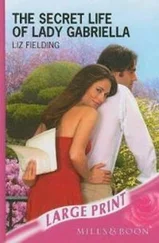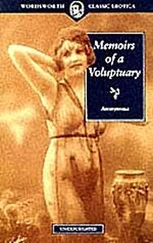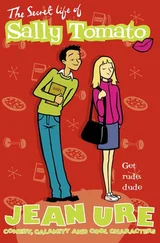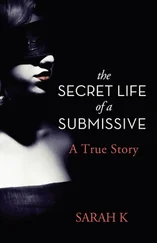Whether to treat the flu or an anxiety attack, Johnny knew that barbiturates had become a staple in the world of filmmaking. As it would happen, he would be the first to introduce Marilyn to a brand-new reality, one formed by barbiturates. He believed that such drugs could make his girlfriend’s world feel like a safer place to her. He also thought, as did many people at that time, that there was no downside to these pharmaceuticals. He viewed them as a portal to happiness and fulfillment and saw the fact that they were almost exclusively accessible to the rich and powerful as evidence of their effectiveness. Perhaps he was using as a measure of the effectiveness of drugs the example of the brilliant career of Judy Garland, who for the past decade had been like an ATM for Metro: deposit drugs—uppers, downers, whatever—and out comes money, and lots of it.
At Johnny’s behest, studio doctors began prescribing drugs to Marilyn on a regular basis. She happily took them. They helped, at least in the short term. Her anxieties were decreased. The voices became softer and bothered her less. Of course, there was one problem with the new reality being entered by Marilyn Monroe. It wasn’t real.
The Asphalt Jungle
I n the autumn of 1949, Marilyn began work on John Huston’s gritty crime drama The Asphalt Jungle , the first so-called caper film that was told from the point of view of the criminals. Marilyn had a showy, memorable cameo—three brief appearances that comprised about five minutes—in the noir classic as Angela Phinley, the sexually arousing, libidinous mistress of an elderly, married, white-collar crook (an attorney) played by longtime MGM contract player Louis Calhern. When finally released in May 1950, the film would earn four Oscar nominations, two of which were for Huston’s writing and directing, with other nominations for black-and-white cinematography and best supporting actor (Sam Jaffe). Marilyn acquitted herself well in her work on this film, demonstrating her growing ability as an actress. Her name didn’t appear in the opening credits, however. It’s on a list at the end of the movie—eleventh out of fifteen names. However, it was a start—a very important movie that would be the catalyst of future big events in her life and career.
“She’d worked hard and, it seemed, had been working hard on herself for some time,” John Huston would later say. “I remember the audition was interesting because the scene was supposed to be on a couch and we had no couch there, so she laid on the floor for the reading. She wasn’t happy with the audition, though, and asked if she could do it again. I said, of course. Do it as many times as you like. She didn’t know it, but she had the part before she even said one word.
“I just knew she was right for it before I even saw her audition for it. She was so vulnerable, so sweet, so willing, you just melted in her presence. I remember thinking, how can anyone not cast her in any movie? She was perfect for the part in The Asphalt Jungle. She said to me, ‘I just want you to know that this will be my most important movie.’ And I told her, ‘Good luck.’ She was worried she wouldn’t be as good in it as I knew she’d be. ‘What if I let you down?’ she asked me. ‘You won’t,’ I told her. ‘Just be yourself and you’ll be fine.’ You just wanted the best for her, you know? Maybe it was a lucky break for her, I don’t know. One thing is certain, she was ready for it. She was ready for it when she got lucky.”
Of course, Marilyn would make sure Natasha was on the set with her every day. In fact, there’s a moment in the movie where Marilyn can be seen glancing off set, presumably at Natasha for direction.
“I don’t know what I did,” Marilyn said when she finished her work on The Asphalt Jungle , “but I do know it felt wonderful!”
Years later, Marilyn Monroe noted that she first saw the finished movie with Johnny at her side, holding her hand. They didn’t speak on the way home, both lost in thought about the magnitude of her achievement. “His heart was happy for me,” she recalled. “I could feel his unselfishness and deep kindness. No man had ever looked on me with such kindness. He not only knew me, he knew Norma Jeane. He knew all the pain and all the desperate things in me. When he put his arms around me and said he loved me, I knew it was true. Nobody had ever loved me like that,” she concluded. “I wished with all my heart that I could love him back.”
All About Eve
E ven though Marilyn knew she’d done a good job on The Asphalt Jungle , it wasn’t to be released for some time. Therefore, 1950 would be a year of great anticipation for her—and a certain amount of frustration as well.
In January, Marilyn filmed another awful movie that Johnny Hyde had secured for her, another bit part, this one in a roller-derby film, The Fireball , starring Mickey Rooney. Marilyn’s role was purely decorative, with only a few scenes and lines of dialogue. Another film that received little play at this time was a fluff movie Marilyn made that same season called Right Cross. This one was a boxing film from MGM starring the studio’s popular, peach-cheeked girl next door June Allyson and her husband Dick Powell. Marilyn was uncredited and mainly unnoticed in the tiny role of Dusky Ledoux, a bar girl who has a brief encounter with Powell’s character. Then, in the spring of 1950, Marilyn was jettisoned into yet another mediocre movie called Home Town Story. The less said about this one the better—though it did resurface abroad as a curiosity after her death. In it, Marilyn has a two-minute scene as a receptionist in a newspaper office.
Johnny Hyde’s rationale for having Marilyn make brief appearances in such terrible movies was that he hoped if she were seen enough onscreen, MGM might actually offer her a contract. That didn’t happen, though. In the meantime, Marilyn would end up spending most of her free time posing for ads, pinups, and photo essays—anything to make a living while she waited to break into what she was finding to be a very tough business.
Meanwhile, Johnny continued to squire Marilyn around town. Ironically, the power had shifted in their relationship. She had gone into it feeling that she needed him. Now, a year later, he was acting as if he needed her, and he seemed to want to do whatever he could think of to keep her happy lest she walk out on him. True, The Asphalt Jungle was important in retrospect because it showed what Marilyn was capable of, but it was such a brief role it went unnoticed by critics. (Later in the year, Johnny would book her in a TV commercial—her first and only—for a motor oil!)
In April of 1950, Johnny Hyde took Marilyn to meet writer and director Joseph L. Mankiewicz, who was getting ready to mount a new film for Darryl Zanuck at Fox. It was All About Eve , and Mankiewicz cast Marilyn in a small but pivotal part based on the job she had done in The Asphalt Jungle . “I thought she was right for the role, which was of an aspiring theater actress,” he recalled many years later, “and Marilyn was nothing if not aspiring at the time. It was suggested that the character would do whatever she had to do to get ahead, and I sensed that in Marilyn there was a certain amount of cunning as well as the innocence. I found her a fascinating mix. On one hand, she was vulnerable. But, on the other, calculating. She knew what she was doing, that one. There was never a false move with her.”
The story of Eve , adapted from a Cosmopolitan short story, is well known—a ruthless, conniving ingénue, Eve Harrington (Anne Baxter), insinuates herself into the life and career of a legendary, aging Broadway star, Margo Channing (Bette Davis), wrecking the lives of all those she touches, as she claws her way to the very pinnacle of theatrical stardom. In two of three set pieces upon which the movie is based, Marilyn shone brilliantly and displayed the early promise she would later fulfill as a dominant screen personality for the next decade and a half. In a scene on the staircase at a birthday party in Margo’s apartment, she is seated in the center with most of the film’s stars seated or standing around her—Baxter, Gary Merrill, Celeste Holm, George Sanders, Gregory Ratoff—and it is impossible to take your eyes off her, even when other characters are delivering their lines. As has been said a thousand times, the camera loves her, and so do we. In her other scene, in the lobby of a theater, she has just fallen victim to her nerves over an audition and has gotten sick in the ladies’ room. Her queasiness is unmistakable and we feel like pressing a cold towel to her forehead, her emotions spent, raw.
Читать дальше












